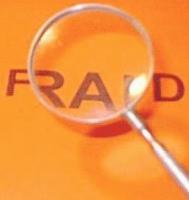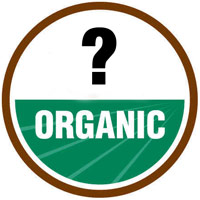Last week, a west Australian egg wholesaler was fined $50,000 in federal court for misleading the public by labeling cartons of eggs as "free range" when they knew a substantial proportion of the eggs were not free range.
Last month, two Arizona residents plead guilty to 13 felony offenses for their roles in purchasing and then re-selling farm-raised Asian catfish and Lake Victoria perch falsely labeled as grouper, sole or snapper; selling foreign farm-raised shrimp  falsely labeled as U.S. wild caught shrimp and selling shrimp that falsely claimed to be larger and more expensive than they actually were; and for buying fish they knew had been illegally imported into the United States. Some of the fish tested positive for malachite green and Enrofloxin, both of which are considered health hazards and banned from U.S. food products.
falsely labeled as U.S. wild caught shrimp and selling shrimp that falsely claimed to be larger and more expensive than they actually were; and for buying fish they knew had been illegally imported into the United States. Some of the fish tested positive for malachite green and Enrofloxin, both of which are considered health hazards and banned from U.S. food products.
Last fall, the Washington Post reported expensive sheep’s milk cheese in a Manhattan market was really made from cow’s milk, a jar of "Sturgeon caviar" was Mississippi paddlefish, and some honey is diluted with sugar beets or corn syrup, but still market as 100 percent pure at a premium price.
Last year, an NBCLA undercover investigation revealed that some farmers at southern California markets are making false claims and flat-out lies about the produce they’re selling.
NBCLA’s investigation began this summer, when we bought produce at farmers markets across the LA area, and then made surprise visits to farms where we were told the produce was being grown.
We found farms full of weeds, or dry dirt, instead of rows of the vegetables that were being sold at the markets. In fact, farmers markets are closely regulated by state law. Farmers who sell at these markets are supposed to sell produce they’ve grown themselves, and they can’t make false claims about their produce.
We did find plenty of vendors doing just that, like Underwood Farms, which sells produce at 14 markets, all grown on a family farm in Moorpark.
But our investigation also uncovered vendors who are selling stuff they didn’t grow, like Frutos Farms, which sells at seven different farmers markets in LA and .jpg) Orange counties.
Orange counties.
Frutos Farm’s state permit to sell produce at farmers markets says their farm is in Cypress.
NBCLA asked owner Jesse Frutos, "Everything you sell at farmers markets is grown in your Cypress field?"
Jesse responded, "Correct…everything."
But when NBCLA made a surprise visit to the Cypress field listed on its permit, Frutos couldn’t show us most of the produce he was selling, such as celery, garlic, and avocados.
So NBCLA asked, "Do you grow avocados here?"
"Avocados? No, not here on the lot. … That I’ll be honest. That stuff came from somewhere else," Frutos said.
Somewhere else? NBCLA’s undercover cameras followed Jesse’s trucks on farmers market days, and saw him going to the big wholesale produce warehouses in downtown LA.
We saw him loading up his truck, with boxes of produce from big commercial farms as far away as Mexico. He bought many of the types of items we saw him selling at the farmers markets.
After documenting this, NBCLA asked Jesse, "You are selling some things at farmers markets that you didn’t grow, that you got at wholesale produce markets?"
Jesse admitted, "Yes."
By the end of our investigation, we found vendors who make false claims selling at more than two dozen farmers markets.
Food fraud has been around a long time.
A recent paper in the British Food Journal reinforces the idea despite scientific sophistication, rules to control food fraud are only as good as the enforcement that backs them up.
In the egg case, Justice Tony North found the conduct involved a high level of dishonesty and was very difficult to detect because once the eggs were in the  cartons it was impossible to determine if they were free range or not.
cartons it was impossible to determine if they were free range or not.
As today’s society grapples with how best to validate that food is indeed what it says it is — and safe — and as the huskers and buskers emerge with cure-alls, I turn to the words of Madeleine Ferrières a professor of social history at the University of Avignon, France, in Sacred Cow, Mad Cow: A History of Food Fears, first published in French in 2002, but translated into English in 2006:
"All human beings before us questioned the contents of their plates. … And we are often too blinded by this amnesia to view our present food situation clearly. This amnesia is very convenient. It allows us to reinvent the past and construct a complaisant, retrospective mythology."
View more videos at: http://www.nbclosangeles.com.
